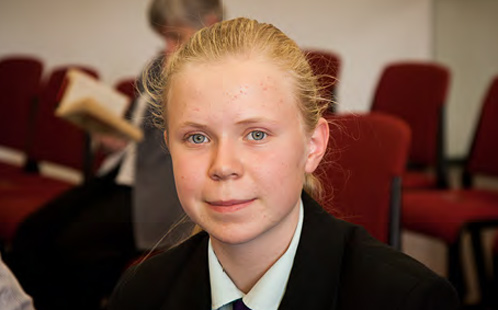Resurrection Project

By Martha Reece, Hunter School of the Performing Arts
2052 CE.
I stare at the frog. The frog’s huge round eyes stare back at me. A tear wells up in my eye but I blink it back down. I toss the picture onto my messy desk and walk out of the room. I stroll slowly down the corridor wondering what it would have been like to be that frog, the last of its kind left in the world... and now it’s my job to bring them back.
The cold hits me like a wall as I step into the freezer room to retrieve the frog’s DNA. It has been filed away since 2015, when its species was critically endangered, so it is several minutes before I find it. By the time I leave the freezer I am shivering with the cold that is necessary to preserve the specimens. I know I’ll warm up soon, though. Global warming will see to that.
I have recently arrived back in Australia from a global meeting of concerned scientists. There were scientists there from major cities all over the world. There were even scientists who lived in Mumbai before it went underwater. I think it was a good idea having them; they know what it feels like to lose their homes, work and possessions to climate change. It helped us all to better understand the scale of climate change’s dramatic effects.
I feel so sorry for the people whose homes have gone underwater. It would be horrible to have to leave and never return. It’s hard not to blame the politicians. They always seem to put their popularity first. Actions that could have been taken to protect the environment and slow down climate change were just too unpopular.
At the meeting we spent most of our time discussing climate change. It has become a big part of all of our lives; we are all working to stop its devastation. Some of us are working on getting governments to take stronger action to reduce human carbon emissions. Some of us are working to prevent and cure the diseases being spread by animals, water and food. Some, like me, are attempting to bring back species that climate change has wiped out. The rest of us are trying to stop or reduce the effects in any other ways possible. But nothing has made any great difference yet. And now the world is slowly dying.
2053CE.
I stare at the frog. The frog’s huge round eyes stare back at me. A tear wells up in my eye but I blink it back down. I put the frog into the enclosure and walk out of the room. Climate change is getting worse. One little frog has been saved but now we have the rest of the world to rescue from inside the hand of climate change. Sea levels are rising, diseases are being spread, the weather is becoming more extreme and species are dying out.
If only we had been smarter forty years ago.
Mobile options:




